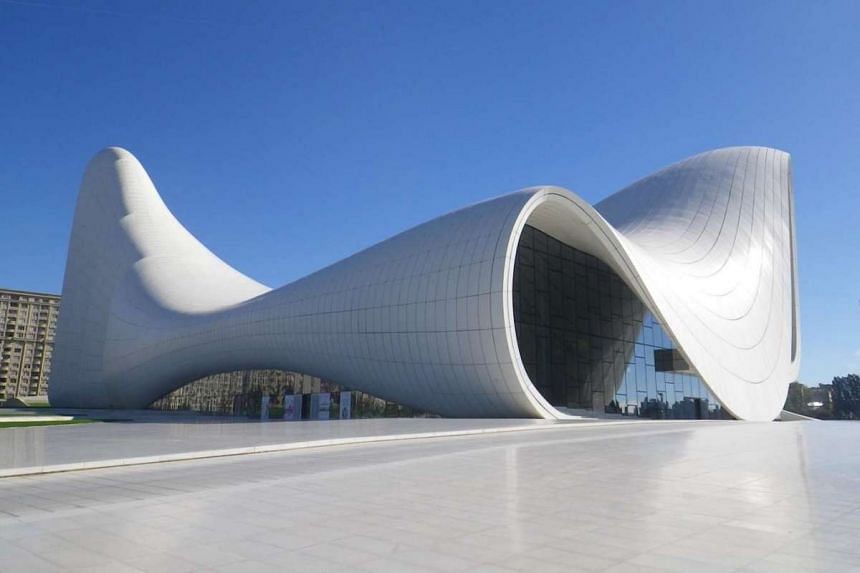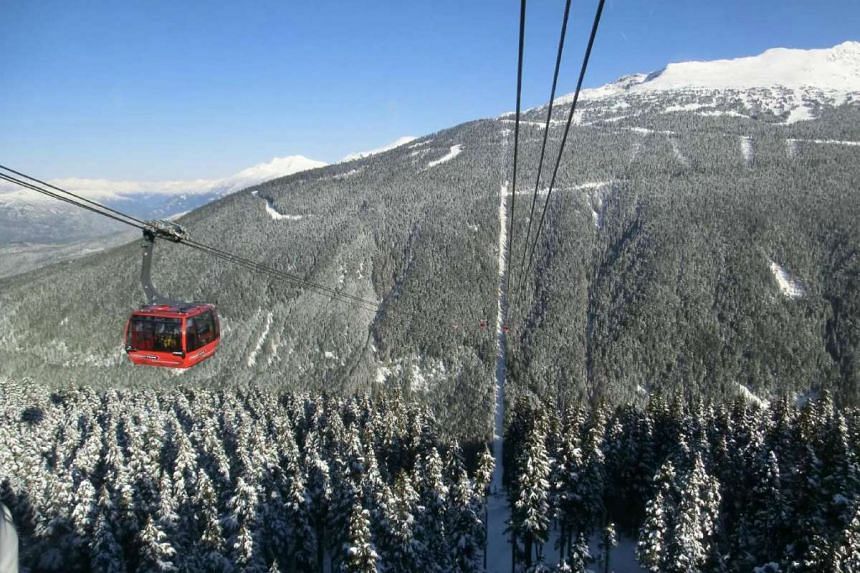-
Russia strikes ISIS to aid Turkey
-
WASHINGTON • Russian warplanes have carried out air strikes to support Turkey's offensive in northern Syria against the Islamic State in Iraq and Syria (ISIS), an important evolution in a budding Russian-Turkish partnership.
The deepening ties threaten to marginalise the United States in the struggle to shape Syria's ultimate fate.
The air missions, which took place for about a week near the strategically important town of Al Bab, represent the Kremlin's first use of its military might to help the Turks in fighting ISIS.
The Russians seized an opening to try to build a military relationship with Turkey, a Nato member, as the US has sought to keep the emphasis on taking Raqqa, ISIS' self-declared capital.
The Russian bombing is a remarkable turnabout from November 2015, when a Turkish F-16 fighter jet shot down a Russian Su-24 attack plane that had violated Turkey's airspace.
Russia and Turkey have been involved in a joint effort to establish a ceasefire in Syria. Meanwhile, ties between the US and Turkey have come under strain as Turkish President Recep Tayyip Erdogan has become increasingly alarmed about the Kurdish YPG forces. The US has aligned itself with YPG to fight ISIS in Syria.
Some analysts say Russia appears to have arrived at an accommodation in which the Turks are moving to establish a security zone in northern Syria to preclude Syrian Kurds from setting up an autonomous region.
In return, the Turks appear to be backing off in their efforts to unseat Syrian President Bashar al-Assad.
NYTIMES
WORLD FOCUS
Rocky road for Turkey
Terror, separatists and authoritarianism threaten a secular republic

PHOTO: AGENCE FRANCE-PRESSE





PHOTO: REUTERS
ISTANBUL (Turkey) • In just six minutes, the cold-blooded gunman fired 180 rounds from his AK-47, killing 39 people and wounding more than 68 before melting into the night.
The attack on revellers ringing in the new year at Istanbul's posh Reina nightclub was claimed by the Islamic State in Iraq and Syria (ISIS). It was the first time that the terror group acknowledged its operations in Turkey, a month after it openly called for attacks on Turkey and Turkish embassies across the world.
A manhunt for the gunman, possibly an Uzbek, continues. Some reports say that he was greeted with cheers after he reached ISIS capital Raqqa in Syria.
Yet, ISIS, whose fighters have transited through Turkey into Syria, is just one of the many threats undermining Turkey's stability.
Operating in tandem are challenges from the flare-up of a decades-old separatist movement, the task of restoring the nation's institutions in the aftermath of a coup attempt and the faltering economy that was the darling of investors just a few years ago.
The 80 million-strong nation, often called the crossroads of the world because of its geographical location between Asia and Europe, is today at a crossroads itself.
With vehicle checkpoints, night raids on houses and low-flying helicopters in Istanbul, there is anxiety on the streets, The New York Times reported.
"There is significant fear in ordinary people," said Mr Aydin Engin, a columnist at the daily newspaper Cumhuriyet, who was detained last year as part of the government's crackdown on the news media. "Fear prevails when it comes to going to an entertainment place, being in a crowd, going to a shopping mall, getting on the metro."
Turkey has been deeply involved in the Syrian civil war since it started in 2011, backing the militias fighting the regime of President Bashar al-Assad. It had been part of the US-led anti-ISIS coalition since 2014 and, one year later, launched a military operation aimed at pushing back ISIS from its borders.
But violence spilled across its 900km border with Syria and Turkey turned into a target for ISIS.
Just weeks before the nightclub carnage in Istanbul, Russia's ambassador to Turkey was assassinated in Ankara by a policeman who chanted militant slogans. ISIS was also blamed by the Turkish authorities for an assault at the Istanbul airport last June, which killed 41.
At the same time, Turkey has also seen an escalation of attacks by the Kurdistan Workers Party (PKK) which has led to at least 2,500 militants, security personnel and civilians being killed since a ceasefire collapsed in mid-2015, according to The Washington Post.
The PKK has waged a three-decade fight for an independent state for the minority Kurdish population within Turkey. It has primarily attacked Turkish security forces and state institutions but has also exacted a civilian toll.
A PKK-linked double bomb attack killed 45 people near a football stadium in Istanbul last month. Some of Turkey's big cities have been targeted recently by both ISIS and Kurdish militants.
President Recep Tayyip Erdogan, while dealing with the spillover of the war from across Turkey's borders from Syria and Iraq that has led to the influx of at least 2.7 million refugees, has been under pressure since an attempted coup against his government last July. The coup attempt was blamed on a network linked to Muslim cleric Fethullah Gulen, who lives in self-exile in the United States. Mr Gulen denies any involvement.
Last week, the Turkish Parliament extended the state of emergency that was declared after the attempted coup.

In its wake, more than 40,000 people have been arrested and more than 100,000 people dismissed or suspended from government jobs. Many media outlets, associations and businesses have been shut down over alleged ties to terror organisations.
Mr Erdogan is pushing for constitutional changes to usher in a presidential system that will give him even greater powers. The proposed changes are likely to be put to a public referendum in April.
While his critics have denounced what they see as a bald usurpation of power that has subverted democracy and polarised the country, many Turks, frightened and uncertain, are not complaining. They view Mr Erdogan's authoritarianism as reassuring and angrily reject outsiders' comments as paranoia and conspiracy theories, The New York Times reported.
To make matters worse, Turkey's economy is slowing down as anxious households and businesses rein in spending, crimping consumption, production and the country's growth prospects. The unemployment rate remains high - around 11 per cent - while the Turkish lira has hit record lows.
"The current turmoil is the biggest challenge for us since establishment of the Turkish Republic in 1923," says Mr Ali Unal, the Ankara bureau chief of the Daily Sabah, a pro-establishment newspaper.
A chill descended on Istanbul after the nightclub attack, opening up simmering tensions between the country's secular, westernised elite and its conservative Islamic segments. They disagree on whether it is proper to celebrate Christmas and New Year, or whether they should be rejected as "illicit" traditions belonging to other cultures.

The Western, secular ethos established after World War I by modern Turkey's founding father Mustafa Kemal Ataturk - who substituted the Gregorian calendar for the traditional Islamic one and replaced the Arabic script with a Latin one - has been tested by the charismatic Mr Erdogan, a deeply religious yet moderate figure.
A majority of the Turkish people support Mr Erdogan's presidency, although Western media outlets depict him as an authoritarian leader, said Mr Unal, citing a recent survey showing that his counter-terrorism policies are backed by more than 80 per cent of the Turkish people.
After the attack on the nightclub, Turkey's government clamped down on social media users who appeared to have celebrated the attacks. The authorities vowed to defend "all lifestyles", religious or secular. But an Associated Press report described fear in Istanbul's neighbourhoods and the silence of its usually bustling streets. The spate of terrorist attacks, as well as the attempted coup, has hit tourism, a key component of the economy.

The number of visitors declined by 30 per cent between January and November last year, falling to 24 million.
The trend is likely to continue this year, said Mr Unal.
But he added: "Terrorist attacks take place not only in Turkey and Istanbul but also in France, Germany, and the US. We had several tragic incidents in recent months but Turkey is still safe for tourists.
"Terrorism is not a new phenomenon. The community has gained resilience against terrorist attacks."
Join ST's Telegram channel and get the latest breaking news delivered to you.
A version of this article appeared in the print edition of The Straits Times on January 10, 2017, with the headline Rocky road for Turkey. Subscribe
